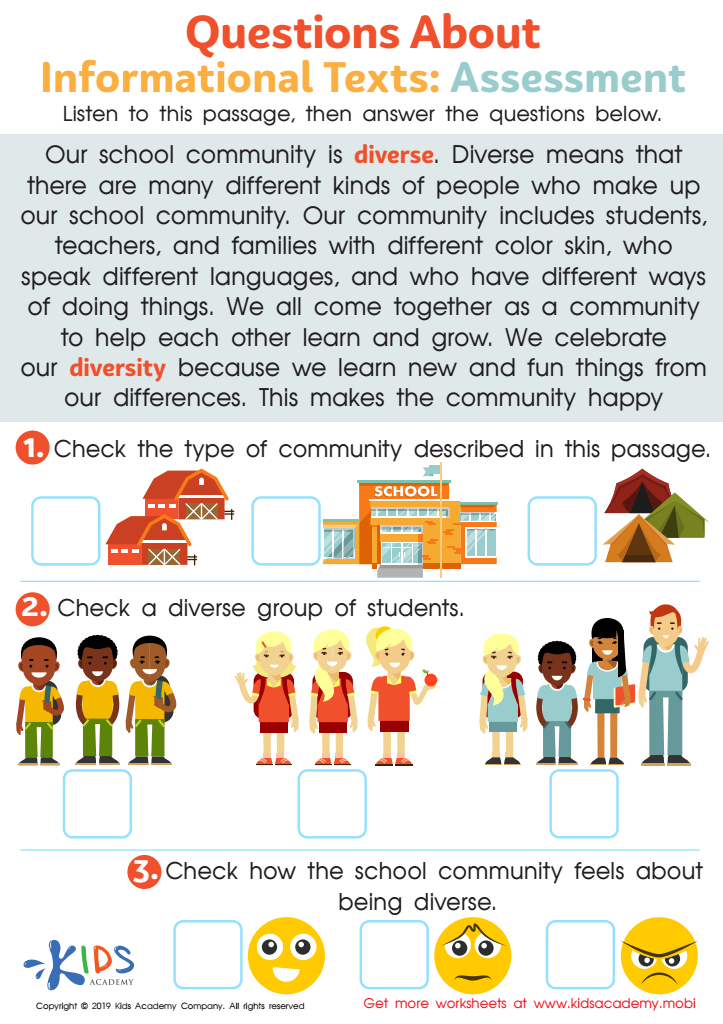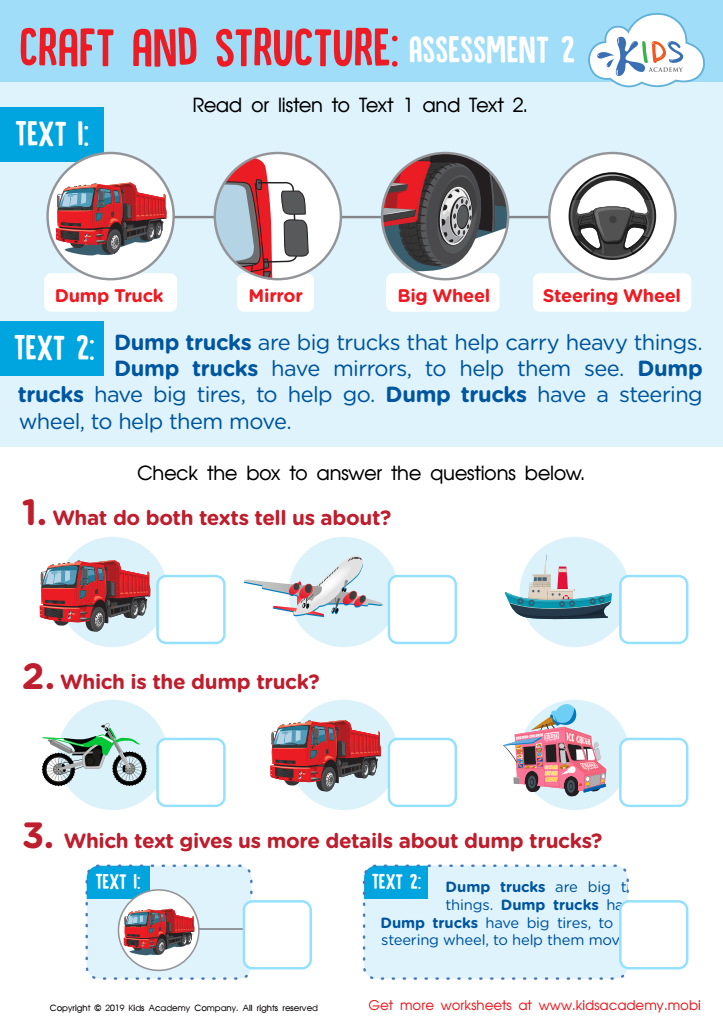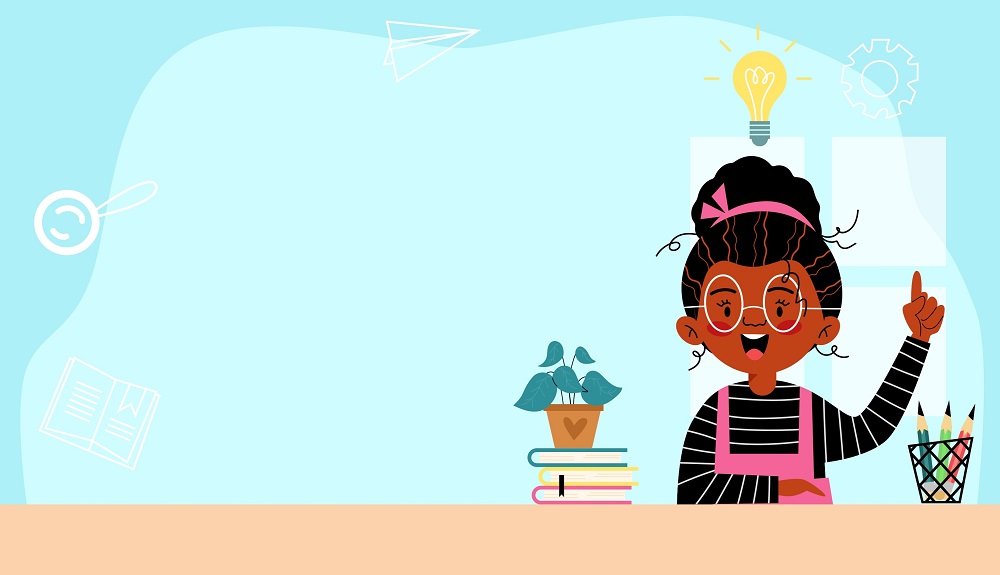Reading Non-Fiction worksheets activities for 6-Year-Olds
2 filtered results
-
From - To


Questions About Informational Texts: Assessment 1 Worksheet


Craft and Structure: Assessment 2 Worksheet
Reading Non-Fiction worksheets activities are a vital tool in the educational landscape, serving numerous purposes that fuel both academic growth and personal development. These activities are specifically designed to enhance comprehension, critical thinking, and analytical skills, which are indispensable in navigating the complex world of non-fiction texts.
First and foremost, Reading Non-Fiction worksheets activities focus on comprehension. Non-fiction texts can range from science articles and historical documents to technical manuals and biographies. The diversity of topics requires a strong foundation in understanding key ideas, identifying main points, and summarizing information. Through structured activities, students are guided to dissect texts, extract essential information, and synthesize knowledge, thereby improving their ability to comprehend various forms of non-fiction.
Moreover, these activities stimulate critical thinking. As students engage with real-world issues and ideas presented in non-fiction texts, they are encouraged to question, analyze, and evaluate the information before them. Reading Non-Fiction worksheets often include activities that challenge learners to compare and contrast differing viewpoints, assess the credibility of sources, and discern fact from opinion. This practice in critical engagement prepares students to navigate the plethora of information available in today's digital age with discernment and skepticism.
Additionally, Reading Non-Fiction worksheets activities serve to enhance analytical writing skills. Many worksheets incorporate exercises that require students to argue a position, cite evidence, and articulate well-formed opinions based on their reading. Such activities are invaluable in developing a student's ability to write clearly and persuasively, skills that are crucial for academic success across all subject areas.
In conclusion, Reading Non-Fiction worksheets activities are a cornerstone in cultivating a well-rounded, informed, and critical reader. They not only bolster comprehension and critical thinking but also prepare students for the rigors of academic writing and the demands of an ever-evolving, information-rich world.
 Assign to the classroom
Assign to the classroom












